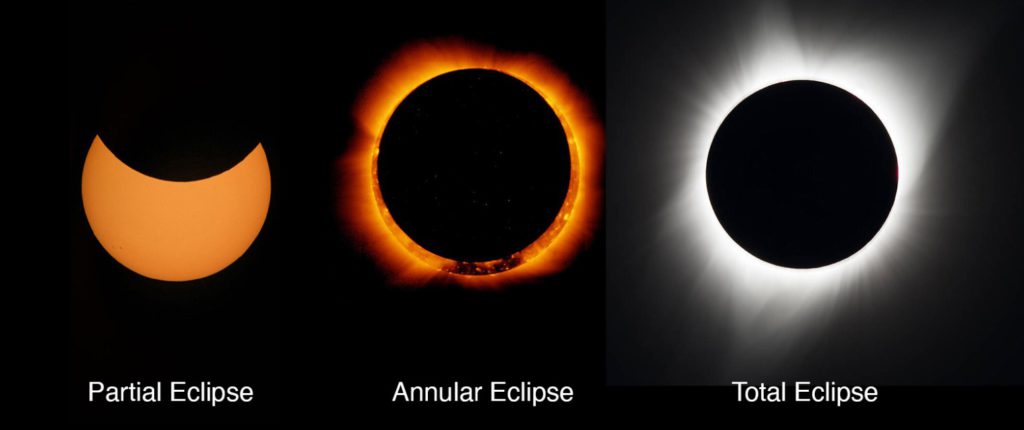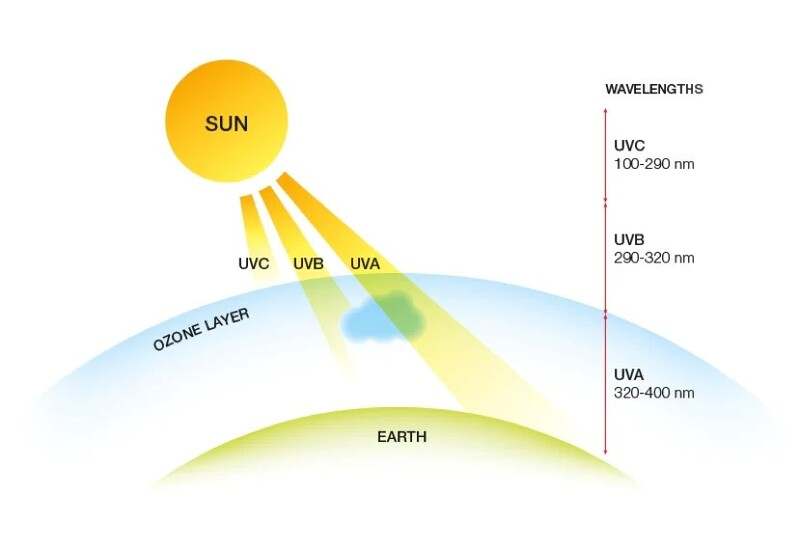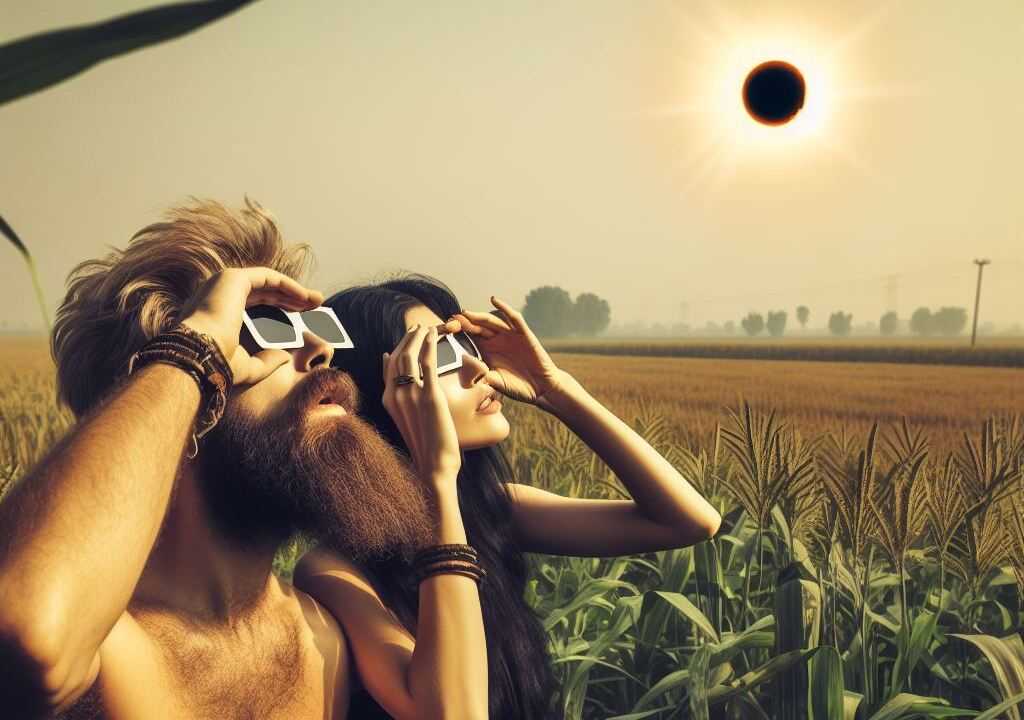Have you ever thought about how solar eclipses might affect your hair and beard health?
Beyond their stunning appearance in the sky, these events could have some hidden impacts on your grooming routine.
Picture this: as the moon obscures the sun’s radiant light, could it also be casting subtle shadows on your hair and beard health?
In our exploration today, we’ll dive into the intricate science behind the interaction between solar eclipses and your precious locks.
From the subtle nuances of solar radiation to the potential impact on hair growth cycles, we’ll uncover the mysteries that lie at the intersection of celestial phenomena and personal grooming routines.
So, fasten your seatbelt as we embark on this journey of discovery, illuminating the pathways to healthier, more resilient hair and beard care amidst the cosmic dance of solar eclipses.

Understanding Solar Eclipses
A solar eclipse happens when the moon moves between the sun and the earth, blocking some or all of the sunlight. There are different types of solar eclipses:
- Total Eclipse: This is when the moon completely covers the sun, turning day into darkness for a short time.
- Partial Eclipse: In a partial eclipse, only part of the sun is covered by the moon, so it looks like a bite has been taken out of the sun.
- Annular Eclipse: An annular eclipse occurs when the moon is far from the earth, so it doesn’t completely cover the sun. Instead, a ring of sunlight surrounds the darkened moon.
Discussion on How Solar Eclipses Occur
Solar eclipses happen because of the way the sun, moon, and earth move in space. The moon orbits around the earth, and the earth orbits around the sun.
Sometimes, the moon’s orbit brings it directly between the earth and the sun, causing a solar eclipse. It’s like a perfect alignment in space.
Mention of the Rarity and Fascination Associated with Solar Eclipses
Solar eclipses are rare events that don’t happen every day. When they do occur, people all over the world are fascinated by them. They gather to watch the sky darken in the middle of the day, and it creates a sense of wonder and excitement.
Some cultures have stories and myths about solar eclipses, adding to the intrigue and mystery surrounding these celestial events.
What is UV radiation?
Solar ultraviolet (UV) radiation is a form of non-ionizing radiation, low-energy electromagnetic waves that are unable to form ions when passing through matter. It includes three groups of rays based on their wavelength measurement in nanometers:
- Longwave UVA: 320 – 400 nm
- Medium wave UVB: 290 – 320 nm
- Shortwave UVC: 100 – 290 nm
Sources of UV radiation can be natural (eg, the sun) or artificial (eg, tanning beds, fluorescent and incandescent lights, lasers).

Because of its short wavelength, all UVC and most UVB radiation from the sun is absorbed by the ozone layer before reaching the ground. Meanwhile, almost all UVA radiation travels further and hits the Earth’s surface.
The amount of UV radiation can vary depending on several factors such as sun elevation, latitude, cloud coverage, altitude, ozone, ground reflectance, and season. Different surfaces reflect or scatter different amounts of UV radiation.
For example, UV radiation levels are higher in tropical regions than in temperate regions. Fresh snow, dry beach sand, and sea foam reflect about 80%, 15%, and 25% of UV radiation, respectively.
Surprisingly, shade can reduce UV radiation by 50% or more, thus, the annual UV exposure of indoor workers is about 10% to 20% of that of outdoor workers.
It is worth noting that during midday in the summer months, the sun’s UV radiation is at its highest.

Impact of Solar Radiation on Hair
When we talk about solar radiation, we’re referring to the energy that comes from the sun. This energy includes different types of light, including ultraviolet (UV) rays.
Just like how the sun can affect our skin, it can also impact our hair. When our hair is exposed to sunlight, it can lead to changes in its health. Think of it like spending too much time in the sun without sunscreen – it can cause damage over time.
Discussion on the Role of UV Radiation in Hair Damage
UV radiation from the sun is a major contributor to hair damage. These UV rays can penetrate the outer layer of our hair, called the cuticle, and reach the inner layers.
This can cause the proteins in our hair to break down, leading to issues like dryness, brittleness, and even changes in color. UV radiation can also weaken the bonds that hold our hair together, making it more prone to breakage and split ends.
Effects of Prolonged Sun Exposure on Hair Strands
Spending too much time in the sun can have some noticeable effects on our hair. Here are a few things you might notice:
- Dryness: Sun exposure can strip our hair of its natural oils, leaving it feeling dry and brittle.
- Brittleness: UV radiation can weaken the structure of our hair, making it more prone to breakage and split ends.
- Color Fading: If you have colored hair, prolonged sun exposure can cause your color to fade faster than usual. This is because UV rays can break down the pigments in your hair, leading to a duller appearance.
While enjoying the sun is great, it’s essential to protect our hair from its harmful effects. Just like we use sunscreen to protect our skin, using products with UV protection can help shield our hair from damage and keep it looking healthy and vibrant.
Influence of Solar Eclipse on Hair & Beard Growth

Scientists have been curious about whether solar eclipses could affect how our hair grows. They’ve done studies to see if there’s a connection between solar events and changes in our hair growth patterns.
Studies Suggesting a Correlation Between Solar Activity and Hair Growth Cycles
Some research suggests that there might be a link between the sun’s activity and how fast our hair grows. Scientists have noticed that during times when the sun is more active, like during a solar eclipse, people’s hair seems to grow more quickly.
Anecdotal Evidence from Individuals Attributing Changes in Hair Growth to Solar Eclipses
Apart from scientific studies, many people have their own stories about how solar eclipses have affected their hair. Some say they’ve noticed their hair growing faster or thicker around the time of an eclipse.
While this isn’t scientific proof, it adds to the intrigue and mystery surrounding the topic.
Discussion on the Role of Solar Radiation in Stimulating or Inhibiting Hair Follicles
Solar radiation, including UV rays from the sun, can have different effects on our hair follicles – the tiny structures in our skin where hair grows from.
When our skin is exposed to sunlight, it absorbs some of the sun’s energy. This can stimulate the hair follicles, encouraging them to produce more hair. However, too much sun exposure can also damage the hair follicles, leading to issues like hair loss or thinning.
So, while there’s still much to learn about how solar eclipses specifically affect our hair growth, it’s clear that solar radiation plays a role in our hair health. Protecting our hair from too much sun exposure is essential to keep it looking and feeling its best.
Protective Measures During a Solar Eclipse
When a solar eclipse happens, the sun’s rays can be more intense than usual. Just like how we protect our skin from the sun’s harmful effects, it’s essential to take care of our hair and beard too.
Sun exposure can damage our hair, making it dry, brittle, and prone to breakage. By protecting our hair and beard during a solar eclipse, we can keep them healthy and looking their best.

Tips for Minimizing Potential Damage
Here are some simple tips to help protect your hair and beard during a solar eclipse:
Wearing Hats or Head Coverings:
One of the easiest ways to shield your hair and beard from the sun is by wearing a hat or head covering. This provides a physical barrier between your hair and the sun’s rays, helping to prevent damage.
Using UV-Blocking Hair Products:
There are special hair products available that contain ingredients to block UV rays from the sun. These products can help protect your hair from damage while still allowing you to enjoy the eclipse.
Seeking Shade During Peak Eclipse Times:
If you’re going to be outside during a solar eclipse, try to find a shady spot to sit or stand. This can help reduce your exposure to the sun’s rays and minimize the risk of damage to your hair and beard.
Keeping Hair Hydrated with Moisturizing Treatments:
After being out in the sun, it’s essential to keep your hair hydrated. Using moisturizing treatments, such as conditioners or hair masks, can help replenish moisture lost from sun exposure and keep your hair healthy and hydrated.
By following these simple tips, you can enjoy the wonder of a solar eclipse while keeping your hair and beard protected from the sun’s harmful effects.
Cultural Beliefs and Superstitions
Different cultures around the world have their own beliefs and stories about solar eclipses and how they might affect us, including our hair. These beliefs often stem from ancient traditions and myths passed down through generations.
Examples of Superstitions Related to Hair Care During Eclipses
Some people believe that solar eclipses can have negative effects on our hair, and they follow certain superstitions to protect themselves.
For example, in some cultures, it’s thought that cutting your hair during an eclipse can bring bad luck or even cause illness. Others believe that washing your hair during an eclipse can wash away your good luck.
Insights into Rituals or Traditions Practiced by Different Cultures to Safeguard Hair During Eclipses
To safeguard their hair during eclipses, people in various cultures may perform rituals or follow traditions passed down through generations.
For instance, some cultures believe that wearing red clothing or tying red threads around their hair can protect them from the negative effects of an eclipse.
Others might stay indoors during an eclipse or avoid looking directly at the sun to keep their hair safe.
By exploring these cultural beliefs and practices, we gain a deeper understanding of how different societies perceive solar eclipses and their potential impact on our hair.
While these beliefs may vary from one culture to another, they all reflect the profound significance of eclipses in shaping our collective understanding of the world around us.
Scientific Perspective vs. Folklore
Scientific explanations are based on evidence and research conducted by scientists. They use experiments and observations to understand how things work in the world.
On the other hand, folklore beliefs are often passed down through generations and are based on cultural traditions, stories, and superstitions.
Importance of Critical Thinking When Evaluating Claims About Solar Eclipse Effects on Hair
When it comes to understanding the effects of solar eclipses on hair, it’s crucial to think critically and consider both scientific explanations and folklore beliefs.
Critical thinking means questioning information and looking for evidence to support claims.
For example, if someone says that a solar eclipse can make your hair grow faster, it’s essential to ask questions like: “Is there scientific evidence to support this claim?” or “Have other people experienced the same thing?”
Encouragement for Readers to Consider Both Perspectives and Draw Their Conclusions
While scientific explanations provide valuable insights into how solar eclipses might affect our hair, folklore beliefs offer cultural and historical context that can enrich our understanding.
By considering both perspectives, readers can gain a more comprehensive view of the topic and draw their conclusions. It’s essential to keep an open mind and be curious about the world around us.
So, next time you hear a claim about solar eclipse effects on hair, take a moment to think critically and explore both scientific and cultural perspectives before forming your opinion.
FAQs
Q: How do solar eclipses affect hair and beard health?
A: Solar eclipses can impact hair and beard health due to increased exposure to solar radiation, including harmful UV rays.
This exposure can lead to dryness, brittleness, and color fading in hair strands, as well as potential damage to the skin underneath the beard.
Q: Can solar eclipses cause hair loss or thinning?
A: While there’s no direct evidence linking solar eclipses to hair loss or thinning, prolonged exposure to UV radiation during eclipses can weaken hair follicles, making them more prone to breakage and potential shedding.
It’s essential to protect hair and beard during eclipses to minimize such risks.
Q: Are there any specific hair care tips during a solar eclipse?
A: Yes, protecting your hair and beard during a solar eclipse is crucial. Wear hats or head coverings to shield hair from direct sunlight, use UV-blocking hair products for added protection.
Seek shade during peak eclipse times, and keep hair hydrated with moisturizing treatments to counteract dryness caused by solar radiation.
Q: Can solar eclipses affect hair growth?
A: Some studies suggest a potential correlation between solar activity and hair growth cycles, indicating that solar eclipses might influence hair growth patterns.
Anecdotal evidence from individuals has reported changes in hair growth coinciding with solar eclipses, although further scientific research is needed to confirm these claims definitively.
Q: How should I care for my hair and beard post-solar eclipse exposure?
A: After being exposed to the sun during a solar eclipse, it’s essential to nourish and hydrate your hair and beard.
Use moisturizing hair products to replenish lost moisture, avoid excessive heat styling, and consider deep conditioning treatments to restore vitality to your hair and beard strands.
Additionally, protecting your hair and beard from further sun exposure with hats or UV-blocking products can help maintain their health and appearance.
Conclusion
We’ve learned that solar eclipses occur when the moon passes between the sun and the earth, casting a shadow on our planet. Different types of eclipses, like total, partial, and annular, affect the amount of sunlight reaching us.
Solar radiation, including UV rays, can impact our hair health, leading to dryness, brittleness, and color fading.
While some research suggests a link between solar activity and hair growth cycles, there’s still much to uncover about how eclipses specifically affect our hair.
Emphasis on the Need for Further Scientific Research in This Area
Although there’s some evidence suggesting a connection between solar activity and hair growth, more scientific research is needed to understand the specific effects of solar eclipses on our hair and beard health.
Conducting controlled studies and gathering data will help us unravel the mysteries surrounding this intriguing topic.
Closing Thoughts on Appreciating the Wonder of Solar Eclipses While Taking Care of Personal Well-being, Including Hair Health
As we marvel at the beauty of solar eclipses, it’s essential to prioritize our personal well-being, including our hair health.
By protecting our hair from the sun’s harmful rays during eclipses and beyond, we can ensure it remains strong and vibrant. Let’s continue to enjoy the wonder of these celestial events while also nurturing our hair and overall health.
After all, just as the sun and moon dance in the sky, we too should find harmony between appreciating nature’s marvels and caring for ourselves.

Bradley Martyn – Grooming Expert with 20+ years of first‑hand experience testing electric shavers in the United Kingdom, United States, and United Arab Emirates. My reviews are based on rigorous, real‑world testing and a commitment to transparent, unbiased insights.
Our Testing MethodologyI personally evaluate each shaver through multiple shave cycles, both wet (with cream or gel) and dry, assessing closeness, comfort on sensitive skin, battery endurance, and ease of cleaning.
If you found the information useful, consider subscribing to the Trimmereo newsletter as well. It’s free and I only send a few emails per month. Unsubscribe at any time.

